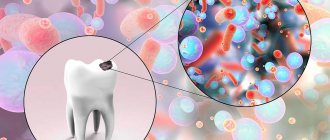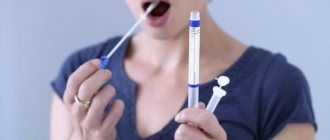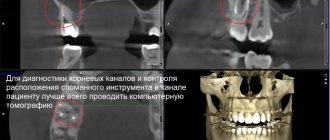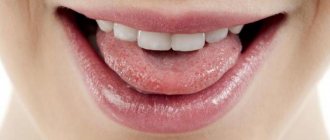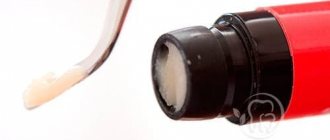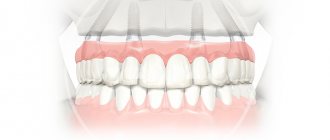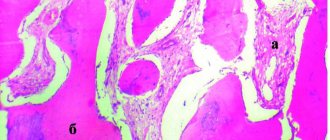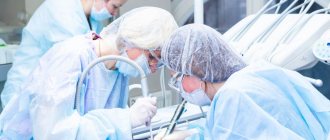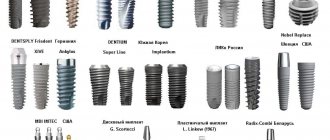The best way to stop drooling is
The following procedures may help:
Changing the position of the berths
People usually drool in their sleep.
If a person is drooling in their sleep, switching to sleeping on their back can be a quick fix. Gravity will prevent saliva from flowing out of the mouth.
A wedge pillow can help a person stay in one position all night, and many are available for purchase online.
Treatment of allergies and sinus problems
Sinus infections and allergies can lead to increased saliva production and nasal congestion.
A blocked nose forces a person to breathe through the mouth, which makes it easier for saliva to leave the body.
Take medication
Your doctor may recommend medications to relieve drooling, especially in patients with neurological conditions.
Scopolamine, also known as hyoscine, intercepts nerve impulses before they reach the salivary glands.
This medication is often taken as a patch placed behind the ear. The patch releases the medication continuously, and one patch usually lasts about 72 hours.
Side effects of scopolamine may include:
- dizziness
- drowsiness
- cardiopalmus
- dry mouth
- itchy eyes
Another option is glycopyrrolate. It also reduces saliva production by blocking nerve impulses, but the side effects can be more severe. These may include:
- irritability
- problematic urination
- hyperactivity
- skin washing
- decreased sweating
Receive Botox injections
Botulinum toxin (Botox) injections have been used to treat drooling in people with neurological disorders.
The doctor injects Botox into the salivary glands, usually using ultrasound imaging. Botox paralyzes the muscles in the area, preventing the salivary glands from working.
The effects of the injections usually last about 6 months and may recur.
A 2012 study found that patients with neurological disorders who received Botox showed a significant reduction in drooling levels.
Visit to a speech therapist
Depending on the cause of drooling, your doctor may recommend a speech therapist.
The goal is to improve jaw stability, tongue strength and mobility. This therapy can also help a person close their lips completely.
Speech therapy may take some time, but a person can learn techniques to improve swallowing and reduce drooling.
Use an oral appliance
An oral appliance is a device placed in the mouth to facilitate swallowing. The device helps with tongue positioning and lip closure.
When a person swallows better, they are likely to drool less.
Have surgery
Surgery is a last resort and is usually only used if an underlying neurological condition causes severe drooling.
Surgery may be recommended for people who experience excessive and prolonged drooling after other treatments have not worked.
Methods may include removal of the sublingual or submandibular salivary glands.
What to do after tooth extraction? We answer the most popular questions
- Can I apply cold?
You cannot apply anything directly to the hole, but you can apply something cold, wrapped in a clean, dry towel, to the cheek in the area of tooth extraction for 3-5 minutes and repeat if necessary. This will help avoid swelling.
- Is it possible to brush your teeth?
Not only is it possible, but it is also necessary. Teeth should be brushed in the usual way, including those located next to the socket - just do it more carefully so as not to injure or remove a blood clot. You should also rinse your mouth without active actions.
- Is it possible to heat the area of an extracted tooth?
It is strictly forbidden to do this: warming up is fraught with inflammation, and then suppuration.
- Is it possible to smoke cigarettes after tooth extraction?
You should not smoke for at least 3 hours after the procedure, or better yet, quit smoking for a couple of days. Nicotine causes vasospasm, which impairs tissue healing.
- Is it allowed to drink alcohol after the procedure?
You should not drink alcohol within 24 hours after the procedure, and if antibiotics are prescribed, the ban applies to the entire course of treatment (i.e. 5-7 days).
- Do I need to take any medications?
If your doctor has not prescribed medication, you do not need to take the pills yourself. If necessary, you can take a pain reliever.
- Is it necessary to do antiseptic rinses?
If nothing worries you and your doctor has not prescribed such procedures, there is no point in doing anything. Rinsing and other manipulations can lead to a blood clot being washed out of the socket, food debris getting there, inflammation and suppuration. If the tooth was removed due to inflammation, the flux was opened, there is an infectious process in the oral cavity, baths with an antiseptic solution are prescribed. The procedure is carried out three times a day: keep the product in the mouth for about 60 seconds.
- What does the socket of an extracted tooth look like normally?
After removal, a burgundy blood clot forms in the hole, then due to the formation of fibrin, the surface of the clot becomes whitish or yellowish. The very next day the clot becomes denser. If in the following days the clot becomes loose, and the wound continues to bleed, there is bad breath and pain in the area of the extracted tooth, you need to consult a doctor.
- What to do if blood comes from the hole?
In the first half hour or hour, blood may come out a little from the hole, especially if you touch it with your tongue. In this case, you should apply a sterile bandage to the wound and wait 15-20 minutes, then carefully remove it. If bleeding occurs later, and a lot of blood is released, you should consult a doctor.
- When can caries be treated after tooth extraction?
Planned treatment can begin no earlier than 7 days later, and if the procedure was complex or several teeth were removed, a pause of 14 days will be required. However, if acute pain occurs, you cannot postpone visiting a doctor.
- What else cannot be done after tooth extraction?
- Wash in a hot bath for the first 24-36 hours.
- Sleep on your side on the side of the extracted tooth for the first 1-3 days.
- Steam in a bathhouse and sauna for 5-7 days.
- Touch the wound with your tongue or foreign objects.
- Yawn widely and actively use facial expressions if stitches are applied.
- Take aspirin (blood thinner).
- Rinse your mouth vigorously for 3 days.
Finally, we’ll tell you what you should be wary of. If, after 24 hours after the procedure, severe pain persists, the wound is bleeding, or there is swelling, it is better not to wait and go for an examination by a dentist without delay!
Tea party
Simple solutions can reduce or eliminate drooling during sleep.
If a person suspects they have reason to believe they are sick, they should seek medical help. Depending on the severity of the disease, drooling can have negative medical and psychosocial consequences if left untreated.
Management techniques are often successful.
We've selected related products based on product quality and listed the pros and cons of each to help you determine which ones will work best for you. We have partnerships with some of the companies who sell these products, which means Healthline UK and our partners may receive a share of the revenue if you make a purchase through the link(s) above.
General questions about Ramadan
Is it possible to swallow saliva while fasting?
Natural swallowing does not spoil the fast. However, deliberately collecting saliva in the ruth in large quantities and swallowing it (to quench thirst) or swallowing the saliva of a wife or loved one violates the fast.
From what age (at what age) can children fast?
Children should fast from the onset of puberty. Until puberty, fasting is not obligatory, but one can fast according to one’s desire and ability.
Is it possible to smoke, use snus or nasvay during fasting?
It is prohibited, these actions spoil the post. This is prohibited not only during fasting, but also in everyday life; for a Muslim it is disgraceful and haram. Since things of this kind are harmful to human health and stupefy the mind.
Is it possible to put on makeup/use cosmetics/apply hairspray/dye your hair while fasting?
Discreet makeup is possible; applying hairspray and dyeing your hair does not violate the reality of the fast! But at the same time, nail polish does not allow you to take ablution to read prayer or touch the Koran.
If a woman gets her period during fasting, is it necessary (is she obligated) to make up for the fast?
At the onset of menstruation, it is necessary to break the fast and it will be necessary to compensate it one to one after the month of Ramadan! From the moment of menstruation until its complete completion, fasting is prohibited.
Is fasting accepted if a person does not perform namaz?
Yes, fasting is considered valid, fasting is a separate type of worship from prayer!
At the same time, the fasting person should not deny the obligatory nature of prayer.
A person will receive reward from the Almighty in this and the next world, depending on what he deserves: reward for good and punishment for sin (if he does not have time to complete repose).
Is it permissible for a non-Muslim to fast (fast) during Ramadan?
Fasting is part of worship and deeds are judged by intention! The intention for fasting should be only to worship Allah! Without believing in Allah and not accepting the tenets of faith, fasting will be considered healthy fasting.
Can I play games on my phone or computer while fasting?
Games on the phone and computer do not spoil the fast of a fasting person. But it is advisable to spend the days of fasting in good deeds, such as reading the Koran or studying religious issues.
What to do during fasting if you are taking medication? Is it possible to get an injection while fasting?
During fasting, medications are taken only between Iftar and Suhoor. An injection breaks the fast and requires compensation (Kada).
Is it possible to swallow saliva from snus?
Snus differs from tobacco in cigarettes due to its increased nicotine content. When smoking, this alkaloid is partially burned, while the rest of the nicotine is absorbed through the mucous membrane of the mouth and lungs. In snus, it enters the bloodstream through the oral epithelium, but it partially dissolves in saliva and can be swallowed.
There is no direct ban on swallowing saliva from snus, so some consumers practice this. But those who try chewing tobacco for the first time may experience unpleasant reactions. Snus bags are kept moist and mixed with baking soda, which provides an alkaline environment. Thanks to a pH above 7.8, the maximum amount of nicotine is released and absorbed. It remains dissolved in the mouth for some time, so swallowing saliva will cause the alkaloid to enter the stomach.
The bag is absorbed within 15-30 minutes, after which it is spat out. Some users can hold it in their mouth for up to an hour. The longer snus is in the mouth, the less nicotine remains in it. Therefore, swallowing saliva 30-40 minutes after placing the bag in the mouth is no longer dangerous.
Why is saliva needed?
Human saliva is a complex biological fluid consisting of 98.5% water. The source of saliva is the major and minor salivary glands. A healthy adult produces about 0.5-2.0 liters of saliva per day. Saliva performs many functions.
!!! The constant flow of saliva plays the role of a cleansing mechanism, helps remove food debris from the teeth, prevents the attachment of microorganisms, and also moisturizes the mucous membranes of the oral cavity, preventing them from drying out and becoming inflamed.
!!! The released saliva weakens the effects of aggressive substances, high and low temperatures, food and drinks on the mucous membrane and teeth.
!!! The enveloping properties of saliva are provided by a complex protein - mucin. It forms a viscous layer of mucus that binds the pathogen, preventing germs from entering. Possessing viscosity, mucin glues and moisturizes food particles that irritate the root of the tongue. As a result of swallowing, the elastic food bolus easily enters the esophagus and then into the stomach.
!!! Saliva has pronounced bacteriostatic and bactericidal properties due to the enzyme Lysozyme contained in it. It destroys the cell walls of many pathogenic bacteria, preventing their growth and reproduction. Lysozyme does not remain permanently in the oral cavity. With frequent spitting of saliva, it is lost.
!!! The blood-clotting function of saliva is determined by the presence in the oral fluid of plasma elements and blood clotting factors - thromboplastin (a product of the destruction of blood platelets - platelets) and prothrombin.
!!! Saliva maintains an optimal acid-base balance in the mouth due to its ability to neutralize acids, thereby reducing the aggressive effects of acidic foods, drinks, and products of microorganisms on the oral organs.
The acidity of each person's saliva is individual; in some people, the saliva is more alkaline, so caries almost does not develop.
!!! Saliva is the first digestive juice. The primary biochemical processing of the food bolus occurs in the oral cavity under the influence of saliva. It contains the enzymes Amylase and Maltase, which alternately act on starch (polysaccharide) and break it down into glucose.
!!! Saliva nourishes the enamel of teeth - those reserves of minerals that teeth lose due to changes in pH levels in the mouth are again supplied to them from saliva. Normally, both of these processes balance each other. But if the balance is disturbed (the leaching of minerals begins to occur faster than their replenishment), caries develops.
Impaired salivation is directly related to the destruction of enamel and frequent cases of caries. As a result of a decrease in the amount of saliva, plaque formation on the teeth increases, and dental plaque is formed. It leads to demineralization of enamel and the development of caries, and also contributes to the appearance of inflammatory periodontal diseases.
Possible consequences
People who have not previously smoked or used snus may experience the following reactions after swallowing saliva from snus:
- stomach ache
- dizziness
- tachycardia
- nausea and vomiting
- headache
- digestive tract spasm
- cold sweat
The earlier the saliva was swallowed, the greater the chance that acute nicotine poisoning will occur.
It often occurs in a mild form and does not require the help of a doctor. People with chronic diseases of the cardiovascular system, lungs or kidneys are more likely to have a severe outcome.
What to do if you feel unwell
If you swallow saliva from snus within a few minutes after inserting the bag, unpleasant symptoms may appear, which indicate mild poisoning. Severe and moderate intoxications in this case are very rare. You can improve your condition using the following techniques:
- take out the bag
- drink large amounts of water and induce vomiting
- accept sorbents
- drink more warm water
Sometimes it is recommended to drink sweet black tea or a glass of milk. With an overdose of nicotine, you can feel an improvement, but the reaction is always individual.
Any available means are used as a sorbent: Smecta, activated carbon, Enterosgel. They are drunk within 30 minutes after the onset of malaise, later the nicotine is completely absorbed, enterosorbents have no effect on it.
If you feel unwell, you do not need to use physical activity - rest and proper sleep are more effective. Mild intoxication disappears within a few hours. And if saliva is swallowed after dissolving snus, poisoning does not occur.
